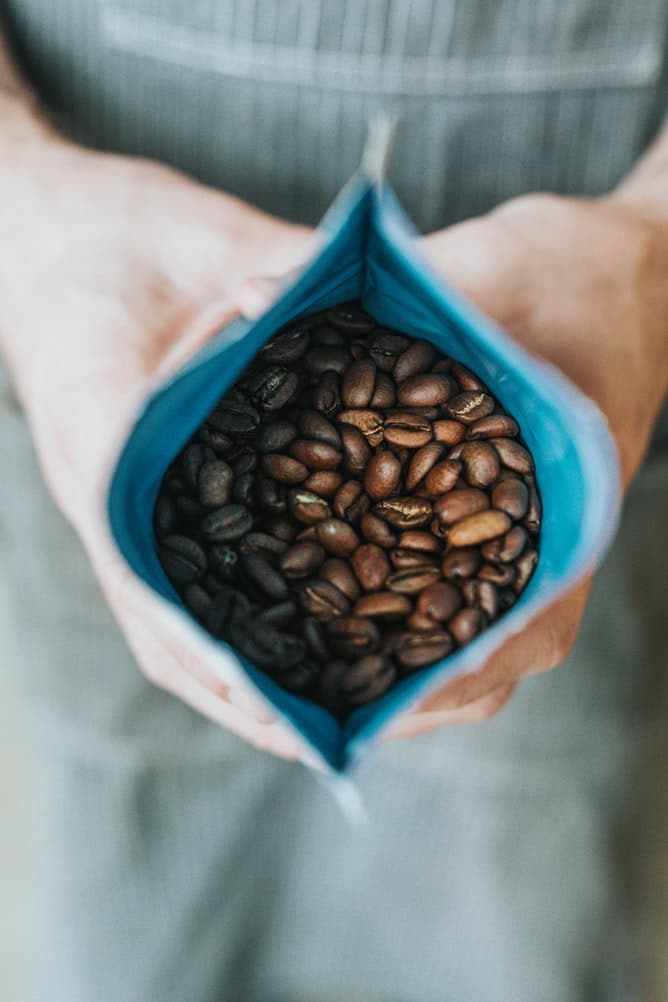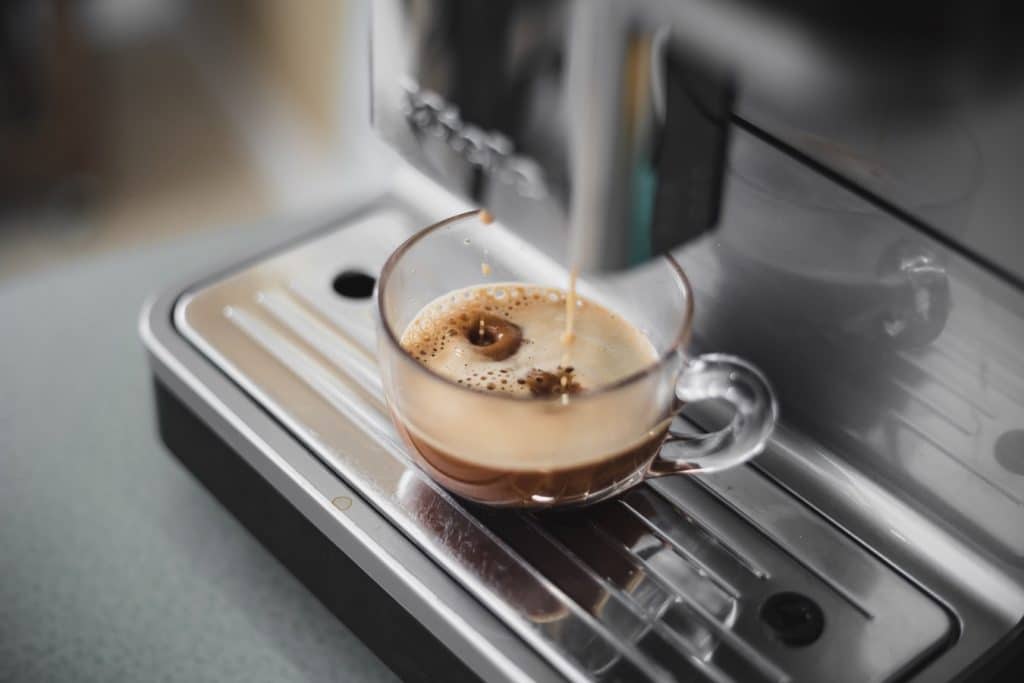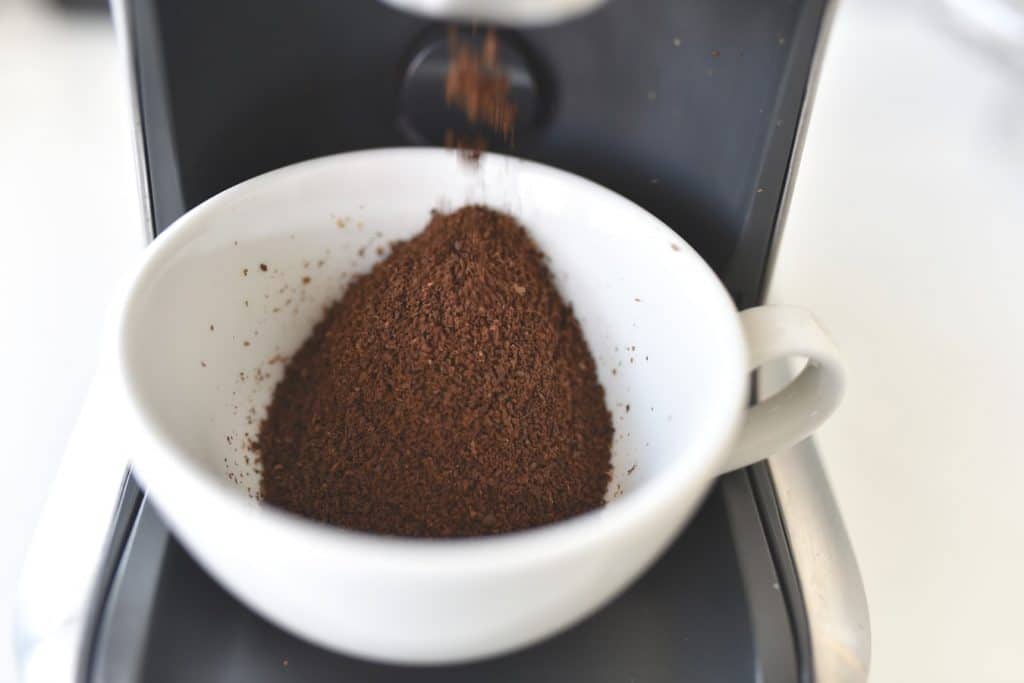Have you ever found a great bargain and purchased exceptional fresh coffee beans at a good price? Maybe your friends gave you a kilogram of your favorite coffee, perhaps even the original author’s roast? Congratulations, you are lucky! Now you need to adequately preserve the treasure, and for this, you should know exactly how long does coffee last. There is no unequivocal answer to this question, so we will examine the differences closely.
So, how long do coffee beans last?
Have you got unroasted beans? Congratulations, these are good for several reasons:
Raw coffee costs much less than beans that have already been roasted. Unroasted beans have a long shelf life.
The shelf life of raw (green) coffee is 1 year with full preservation of all flavoring properties, most of the flavor even remain up to 3 years. The total shelf-life of raw beans is 5 years.
An unprocessed coffee bean can retain its properties for a very long time, so it is often bought for long-term storage to consume in the future. A logical question arises…how much time has roasted coffee already spent in warehouses?
Raw beans in a sealed or vacuum-packed bag have a maximum shelf life.
If you buy coffee in bags or other containers, then it must have a date. This is the date of packing the beans. It is the first thing to consider.
If you buy coffee by weight, you will have to pay special attention to the condition and appearance of the beans. It will help you determine how much more coffee will be usable.
The bean is of uniform color, with a velvety, dull surface, expressed by a longitudinal groove, which has a faint odor reminiscent of a grassy, most likely, fresh crop. Fresh beans can be hard or loose, but in any case, they can be easily cracked into pieces, the edges of which will be quite smooth, without chips and excessive crumbling. Such coffee can be bought for long-term storage.
Raw coffee beans do not have a recognizable, familiar flavor that appears only after roasting. Green coffee has a grassy odor that resembles the aroma of green tea.
Beans that have a noticeable difference in size and shades are most likely a mixture of different ages. If debris or sand gets into the beans, you shouldn’t buy them. It may be the debris from manufacturing over a period of time, issued as “real contraband goods”.
Old beans have no smell but retain color uniformity. Beans may look slightly shriveled, especially around the edge. If you are tempted to buy, the sooner you use it, the better. It is better not to put off such beans for long storage.
Unroasted beans that have reached the expiration date have a non-uniform color and crumble easily. They may seem to have increased hardness, but are fragile and crumble into many pieces with an abundance of crumbs. They lack aroma and may have an unpleasant, musty smell.
Unroasted coffee retains its taste and aromatic qualities throughout its entire period only with proper storage.
The shelf life of roasted coffee beans
Roasted coffee beans behave differently when stored than raw beans. Heat treatment not only changes the color, smell, taste and even the size of the coffee bean but also reveals caffeine – a bouquet of aromatic oils that evaporate very quickly. The shelf life of the roasted beans varies greatly depending on the storage conditions.
Processed beans that are stored in ordinary, leaky containers – jars or boxes – have a shelf life of 10-14 days.
Packaging at home using foil will extend the shelf life up to 3-4 weeks.
Roasted beans packed in sealed four-layer paper bags are stored for up to 6 months. If the bags have an additional polymer coating from the inside, then the period increases to 9 months.
Roasted coffee beans in heat-sealable bags based on film or foil can be stored for up to 12 months. Such bags have a special vent valve. It is necessary for freshly roasted beans because after roasting, they continue to emit carbon dioxide due to the opening of the smallest internal capsules. If you let the beans “exhale” completely, they will undergo strong oxidation.
The presence of a degassing check valve on the bags gives the bean the opportunity to “breathe”. They can be packaged immediately after processing, and gas will continue to exist without inflating the bag from the inside.
Roasted beans in opaque jars with hermetically sealed lids, packed in a factory way, also have a long shelf life of up to 18 months.
After opening any sealed packaging, the shelf life of fried beans does not exceed 10-14 days.
The shelf life of vacuum-packed coffee

The use of vacuum packaging to store roasted beans is widespread. It is a package, most often made of foil. Air from the bag is displaced and replaced with an inert gas. It slows down or completely stops the oxidation process. Vacuum packaging of beans and ground coffee vary. In the latter case, the air is simply pumped out of the bag without being replaced by anything.
The packaging for coffee beans is equipped with a reverse gas vent valve to remove carbon dioxide that comes out of freshly roasted beans.
The shelf life of beans in vacuum bags is up to 18 months.
In case of violation of the tightness of the package or opening the package, the shelf life of the beans is 2 weeks. Before the end of this period, coffee must be consumed.
Roasted beans, even with all kinds of tricks, quickly lose some of their properties, so they are only really suitable for short-term storage.
Can I drink coffee if it has expired?

Like any other product, it is better not to use it after the expiration of the storage time. Spoiled coffee can be identified by several signs:
- A rancid taste;
- Lack of aroma of the drink;
- The appearance of mold (this happens if moisture gets into the package);
- The formation of odors.
What happens if you drink expired coffee? Even one cup of such a drink can cause food poisoning.
The main danger lies in the fats present in beans, which over time seriously deteriorate. Instant coffee is unlikely to lead to serious consequences since it does not contain such substances. In any case, though, a delicious drink from an expired product will not work.
How can I determine if coffee beans are bad?
Coffee beans almost never spoil, become rotten or moldy. But if a small amount of water gets into the package and you see some changes in the beans, such as mold, then it is recommended to get rid of them immediately. Do the same if you smell something unusual in your coffee. In other cases, the beans are completely safe for making delicious coffee.
Over time, you may begin to notice that the usual aroma and taste weaken. You can probably conclude that the beans are past their prime when you make coffee that doesn’t taste as good as it did before. In this case, you have two options, either you simply throw out the obsolete beans, or you save them and make poor quality coffee. It is up to you. There are people who do not notice the difference in the taste of coffee made from fresh beans and beans that have been lying on the shelf for months. If the coffee you drink tastes the same as a month ago, then you have nothing to worry about.
Why should coffee be fresh?

Speaking simply and briefly, taste.
For example, let’s take a regular piece of bread, bought in a bakery. You bring it to your home and cut a slice. It is still warm and soft, remember the taste of bread that you just pulled out of the oven!
Of course, it may seem to you that the difference between fresh and older coffee is not as important as a loaf of bread, but you will be surprised!
Fresh beans give coffee notes reminiscent of the taste of raspberries or hazelnuts, which most would not even notice.
If you start buying freshly roasted beans, this will greatly improve the preparation of coffee in your kitchen. Do not confuse the grind of fresh coffee beans with the cheap ground coffee purchased at the store.
If you did not know about this before, then welcome to the world of delicious and aromatic coffee!
To buy fresh coffee beans, you just need to ask the seller when they were roasted, then do not forget to buy a quality coffee grinder.
How Long Until Coffee Is No Longer Drinkable?
Coffee is an amazingly elastic product. Try to leave bread or meat for at least a week and you will witness how many billions of organisms can have a banquet on your food.
What will happen to coffee in a week? Nothing. Coffee may be acceptable for years to come!
But why is this happening? Why does coffee not go bad for so long?
The first reason is that coffee is not a source of a large number of calories, so for bacteria, it is not considered a delicacy and a source of energy.
The second reason is that caffeine contained in coffee is a natural toxin for many life forms on our planet. Humans are one of the few creatures that can easily tolerate what kills billions of life forms!
Can you drink coffee from beans just roasted?
Yes, you can do it, but such coffee is not optimal.
Freshly roasted beans will peak in quality in about 3 days for brewed coffee and about 3-5 days for espresso.
So why is brewing coffee from just roasted beans, not a good idea? Let’s figure it out! Your roaster should let your beans rest, after which you can already sell them.
When roasting, the beans are heated to a very high temperature (approximately 400F for dark and heavy roasts). Such a high temperature leads to the formation of secretive carbon dioxide (CO2), which can greatly ruin the taste of your roast.
Carbon dioxide does not go far after roasting beans. Approximately 40% remains on the first day after roasting.
But if you pour a small amount of water into freshly ground coffee and let it stand for a couple of minutes before brewing it, this will help you to beat off carbon dioxide.
Hopefully, roasters will not sell you coffee beans that may not yet be drinkable. Or they will warn you that your beans are just recently cooked and they need time to rest.
But if you decide to make coffee yourself, then I think that you will want to experiment with the amount of time that you give the beans to rest.
So what should I buy?
Well, first, let me check that you are doing everything you can to find a local independent coffee roaster.
Most will offer delivery too. Otherwise, there are many great online options that will deliver in a couple of days. I highly recommend you buy freshly roasted coffee beans.
This will completely change the rules of the game if you are not already doing so.
The most important thing to look for is information about the roast. Somewhere on the packaging should be a date that tells you when the beans were roasted.
Some major brands may even write next to it when the coffee reaches its peak.
The importance of this step cannot be overestimated, if all you took from this site is to find a local roaster nearby and spend an extra $2 on a bag with a roast date, then you will instantly make MUCH better coffee.
If someone who knows what he is doing is selling coffee, there is no risk that you will drink it too quickly – he will not be put up for sale until it is ready. Just aim to drink it either before or within 15 days from the date of the roast to create the optimal coffee standard.
Does this mean that you need to drink coffee within a week or two after buying it to ensure that you get the best drink? Yes. Exactly.
